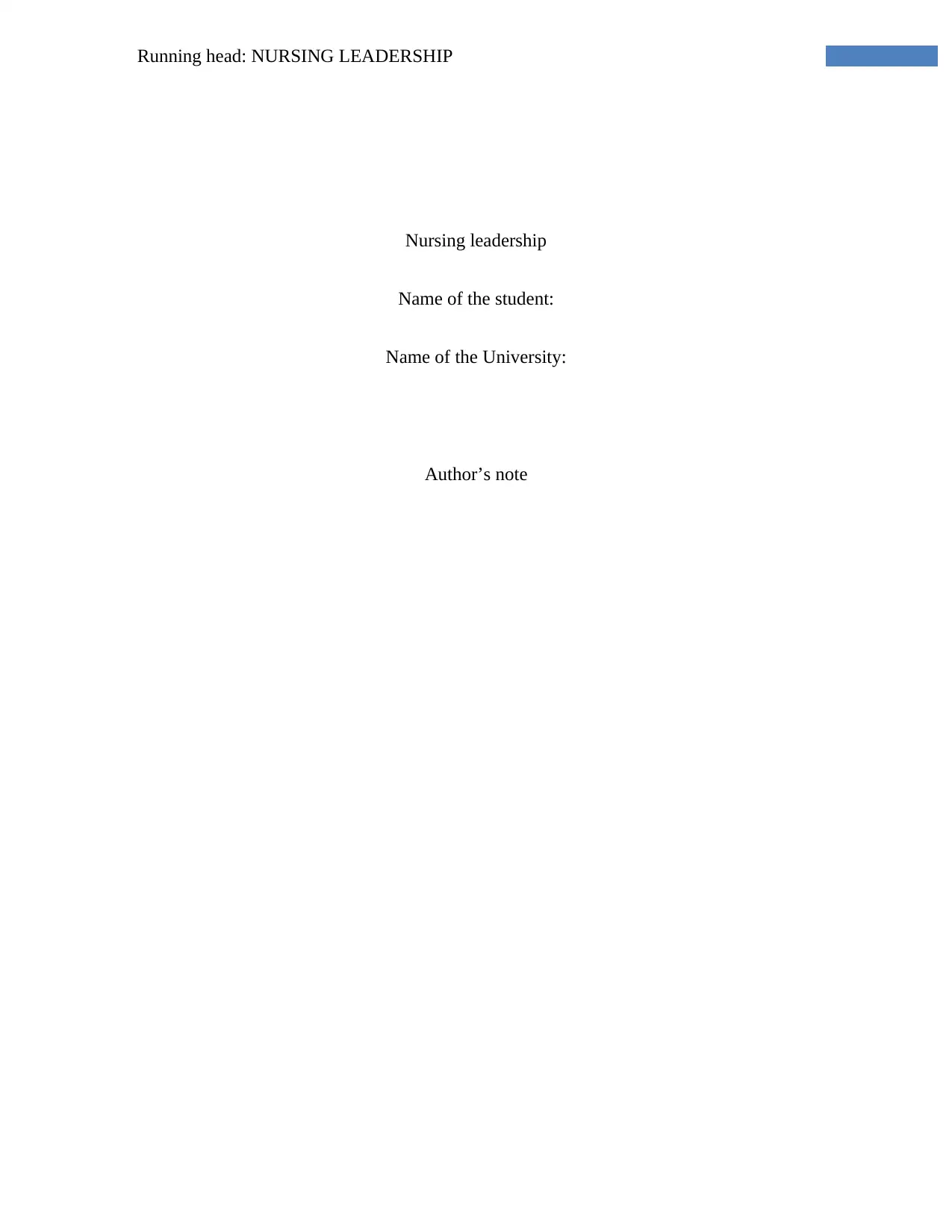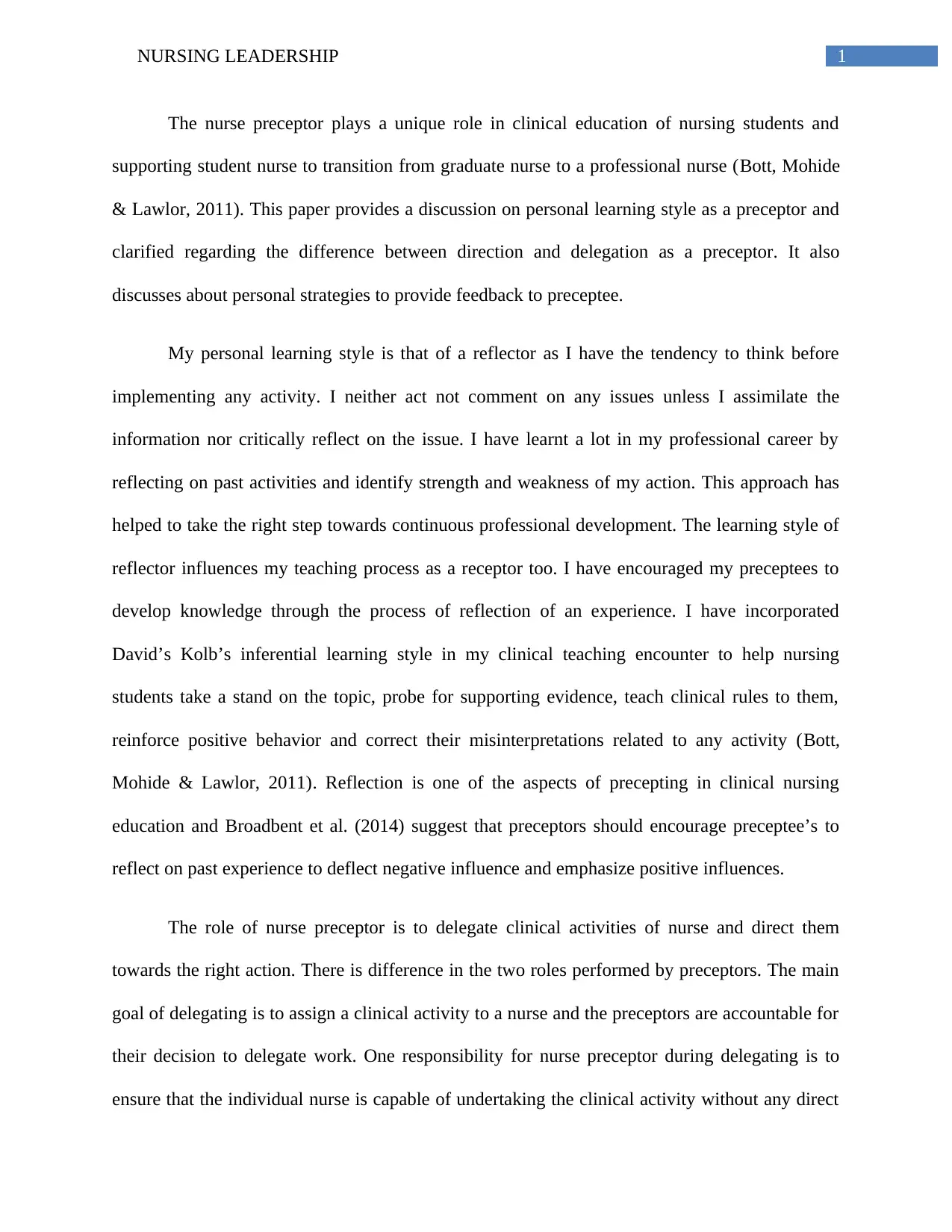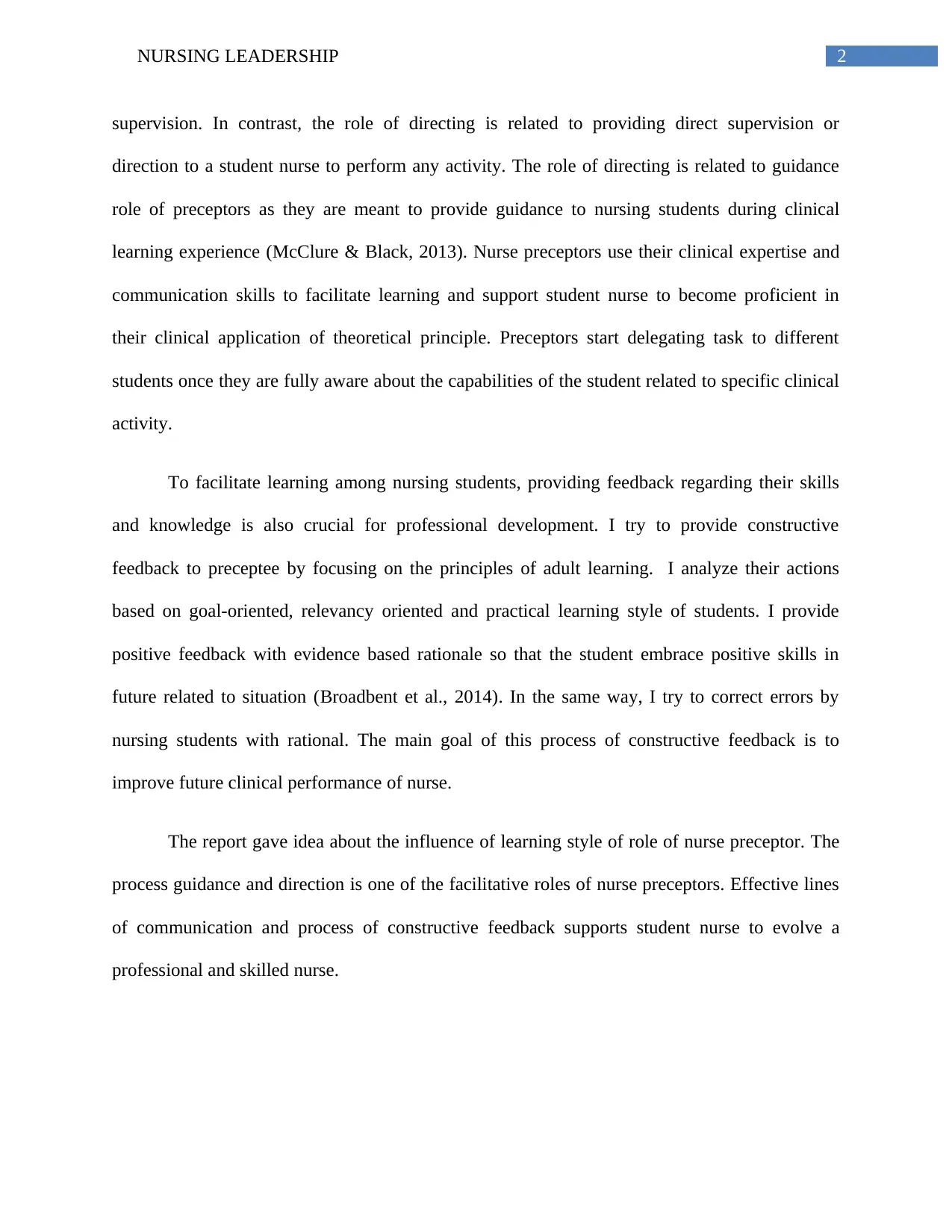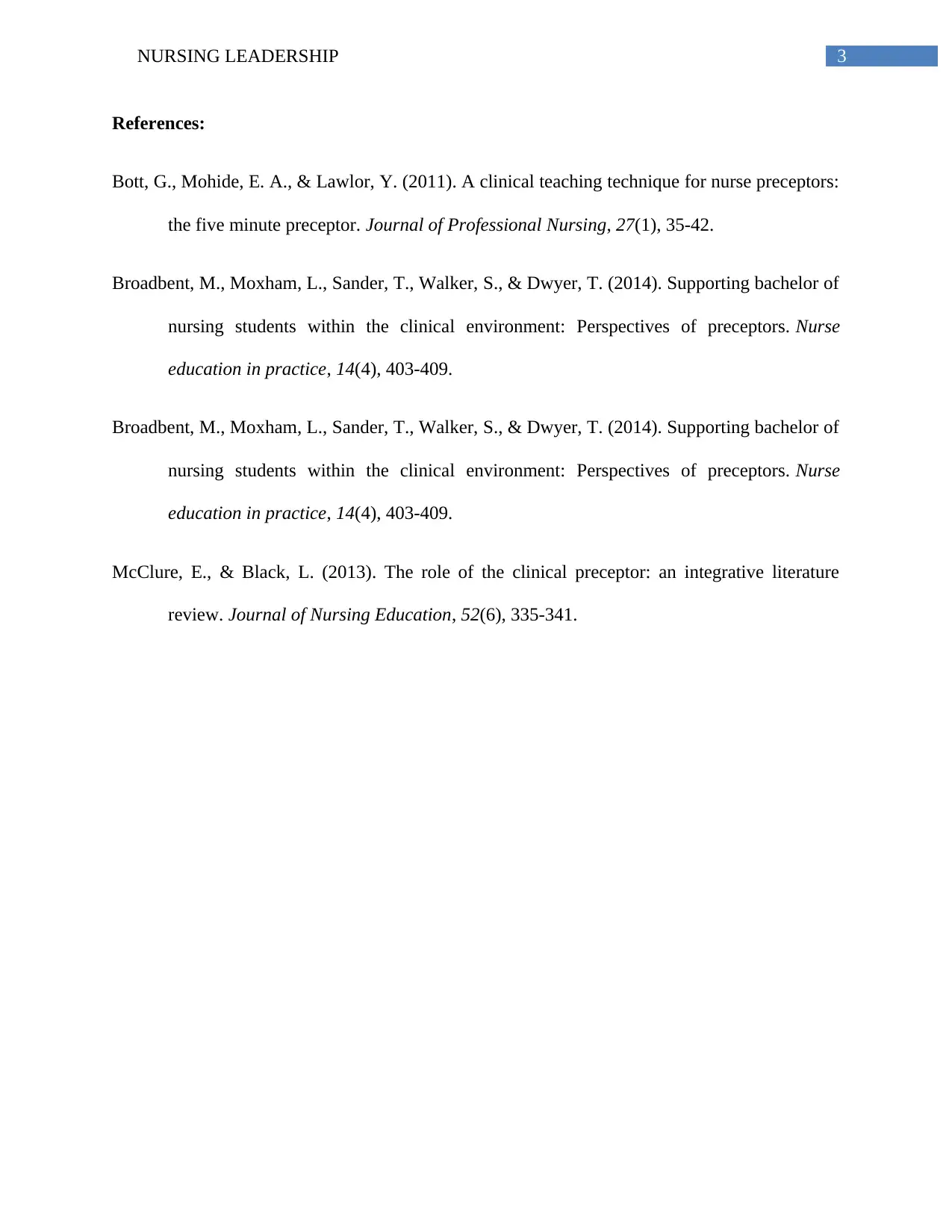Nurse Preceptor Leadership: Delegation, Direction, and Learning Styles
VerifiedAdded on 2023/06/11
|4
|854
|53
Essay
AI Summary
This essay explores the role of a nurse preceptor in clinical education, focusing on personal learning styles, delegation versus direction, and strategies for providing feedback to preceptees. The author identifies as a reflector, emphasizing the importance of thinking and reflecting before acting. David Kolb's inferential learning style is incorporated into clinical teaching to encourage critical thinking and evidence-based practice among nursing students. The paper differentiates between delegating tasks, which involves assigning activities based on a nurse's capabilities, and directing, which involves providing guidance and supervision. Effective feedback, based on adult learning principles, is crucial for facilitating student development, with a focus on goal-oriented, relevant, and practical learning. The author aims to provide constructive feedback with evidence-based rationale to improve future clinical performance. The essay highlights how effective communication and constructive feedback support student nurses in becoming skilled professionals. Desklib provides similar solved assignments for students.
1 out of 4











![[object Object]](/_next/static/media/star-bottom.7253800d.svg)